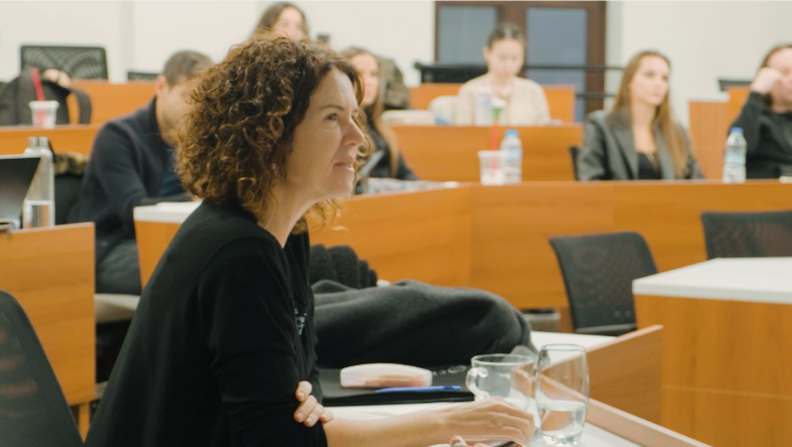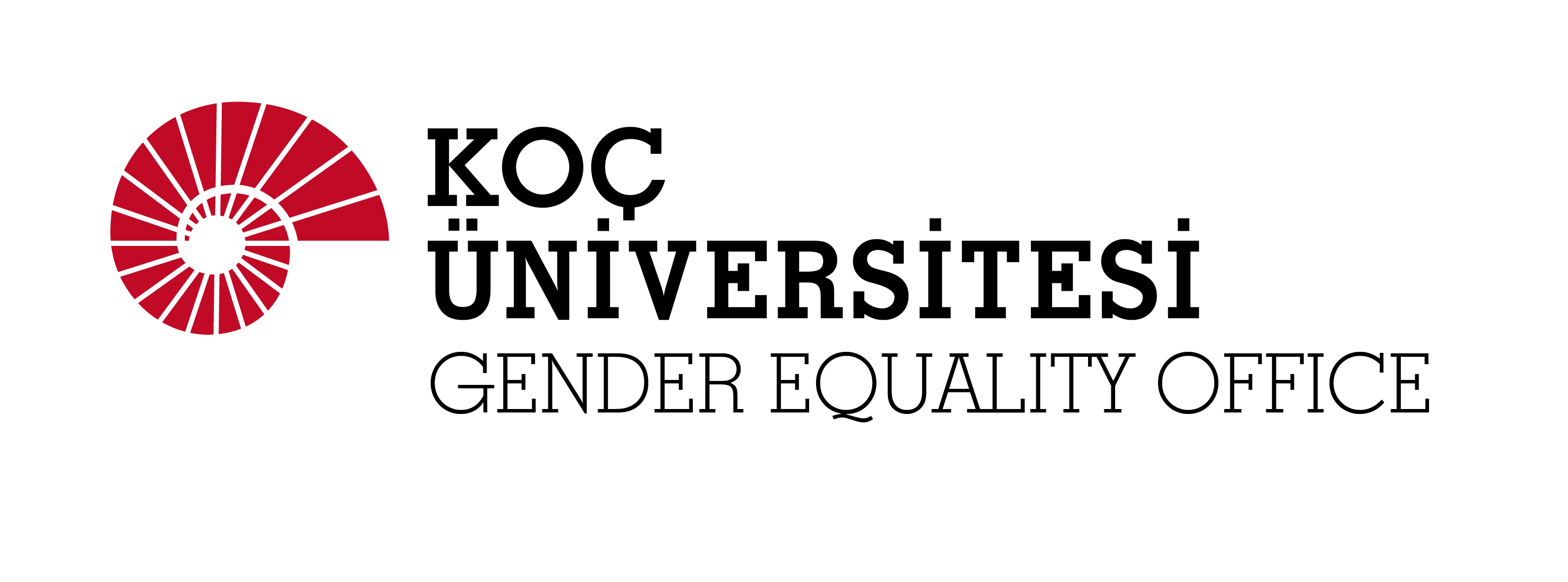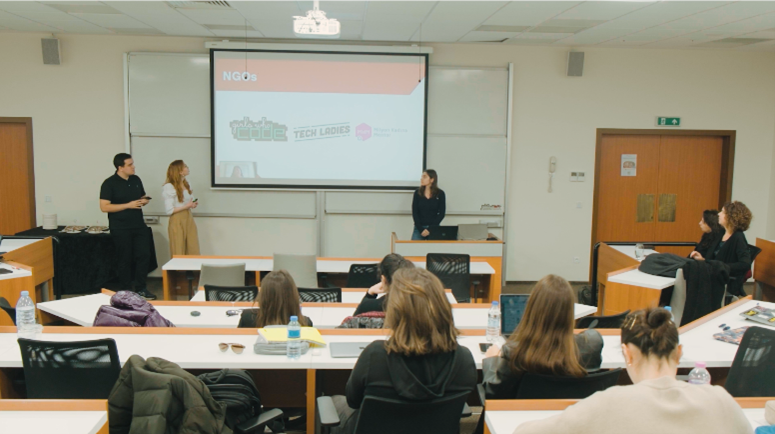
Acting as catalysts for students Aykhan Mirzoyev, Ayça Kahraman, Ishita Sinha, and Selin Wendt, the course and ensuing project reshaped their understanding of diversity, inclusion, and equality frameworks in real-world business settings. Aykhan highlighted the profound link between sustainability and diversity, recognizing the integral role of gender equality in shaping sustainable business practices. Reflecting on the project’s impact, Ishita emphasized its role in uncovering the reality of corporate environments regarding gender inclusivity. This insight underscored the need for meticulous planning and initiatives that empower all individuals, not just a select few.
“The project made me understand how carefully the plans and initiatives should be created so that they empower all and not a select few,” articulated Ishita.
Ayça acknowledged the project’s role in providing tangible demonstrations of corporations working towards a sustainable future while recognizing existing gaps in implementation on equality and inclusivity. “The project also made me understand the fact that we are still lacking in terms of implementations on these topics,” Ayça added.
Ayça expressed surprise at the lack of equality and inclusivity data in various institutions, emphasizing the innovative and inclusive nature of startups. “It was a big surprise to figure out that not only research institutions or other organizations lack this but also top companies too. Startups on the other hand were one of the best organizations to look into, and their innovative and inclusive nature was exciting and encouraging,” Ayça shared.
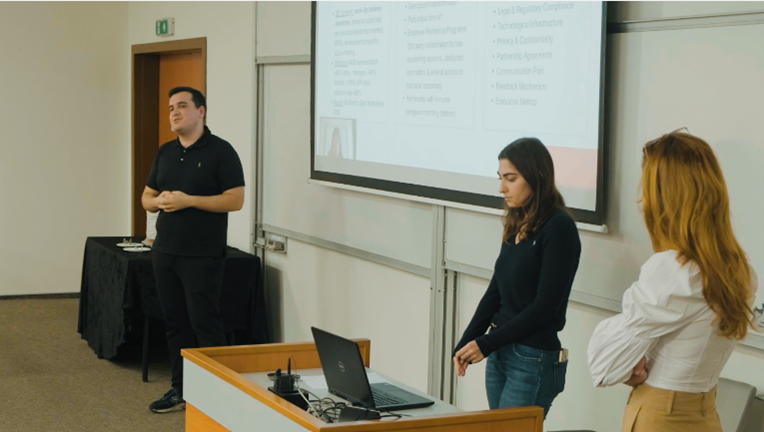
‟Understanding how gender equality fits into this framework has become integral to my comprehension of sustainable business practices, ״ shared Aykhan.
The students articulated their commitment to applying the insights gained from the project in their future academic and professional pursuits. Aykhan plans to advocate for inclusive policies and cultural changes within organizations. Ishita aims to incorporate findings on empowering ways to bring employees together, recognizing the importance of inclusivity in leadership. “It is very important to know and be sensitive to having inclusivity as a leader and helps me immensely currently in my academic career as well,” Ishita shared.
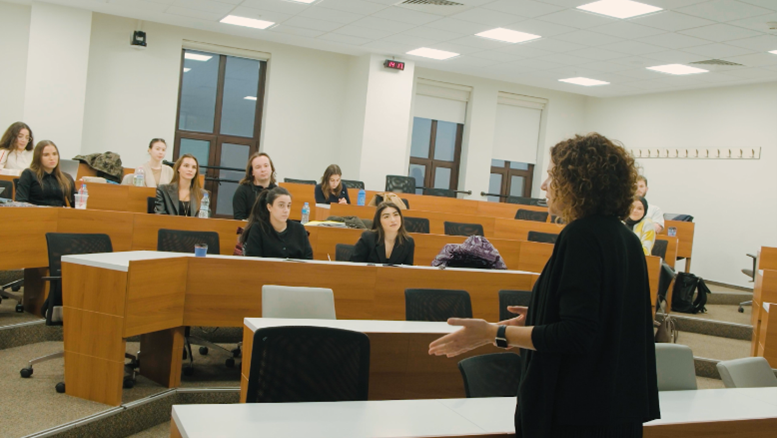
‟I would like to be a part of an initiative or start an initiative in the future company that I’m working with to create a more inclusive and diverse workplace,” Ayça expressed.
The students strongly believe in the interconnectedness of diversity, equality, and inclusion with sustainability initiatives in modern organizational settings. Selin emphasized how DEI initiatives enhance the sense of community, contributing not only to social sustainability but also the future well-being of organizations. “I believe that strong DEI initiatives enhance the sense of community within a firm, which in turn increases happiness and decreases retention rates. Keeping the work environment stable enables shifting the focus on other sustainability initiatives,” Selin articulated.
The collaborative project prompted the students to rethink certain business practices and challenge their perceptions of inclusive workplaces. Aykhan and Ishita shared how the project influenced their understanding of the importance of inclusive practices in creating more people-focused and caring workplaces. Selin reflected on her initial surprise at the active pursuit of diversity and inclusion goals by many companies, contrasting it with the reality revealed by company data.
‟Before, I have never considered the importance of such practices. However, now I do as I realized that workplaces enforcing such practices are people-focused and care about the personal as well as professional development of each employee, ״ Selin concluded.
In essence, this collaboration between students and the GEO exemplifies the critical role of the student community in designing and implementing gender equality initiatives. Engaging with students not only enriches their academic experience but also contributes meaningfully to the goals of the Gender Equality Plan, fostering a more inclusive and diverse learning environment at Koç University.
Interview with the Professor: Guiding Gender Equality Progress and Inclusive Learning
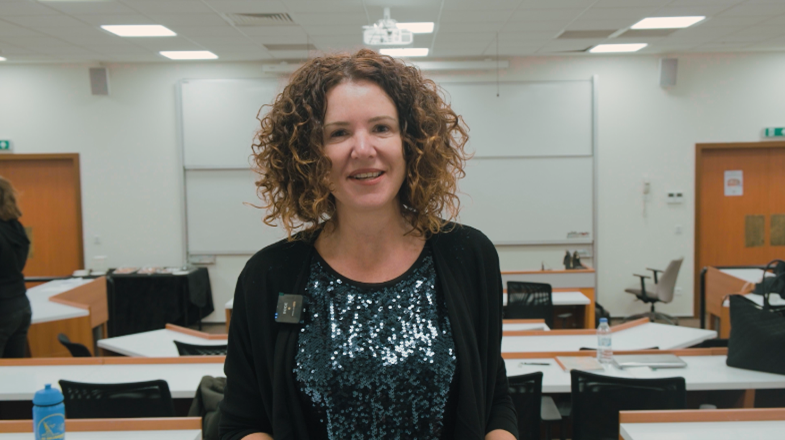
Reflecting on the grant’s influence on her teaching approach and passion, Melike emphasized its inspirational impact on both her and her students. “The grant provided an opportunity to come up with updates to my curriculum with more case studies on gender and diversity and with more projects addressing inclusivity issues,” she noted.
As an educator integrating case studies on gender and diversity, Melike shared insights gained during the collaborative project. While Koç University excels in creating an inclusive space, evaluations of the global higher education ecosystem revealed significant issues regarding diversity and gender. She stressed the importance of continually strengthening the commitment to inclusivity, ensuring Koç University’s leading role in promoting equality and diversity within academia.
‟Having an inclusive classroom is about creating a nurturing environment that respects differences and treats everyone equally. Moreover, it is really rewarding to make sure that everyone feels included as the overall learning is much more improved when we have a diverse cohort, ״ Melike reflected.
Melike concluded by sharing her philosophy on inclusivity in the classroom, emphasizing the rewards of ensuring everyone feels included for an improved overall learning experience. Her recent class, with a remarkably diverse group of students, exemplified deliberate efforts to create an inclusive environment, fostering innovative solutions through diverse perspectives.
In essence, Professor Melike’s insights provide a compelling narrative of her commitment to gender equality and inclusivity, showcasing how academic excellence and practical initiatives intersect at Koç University. Her ongoing contributions not only shape the learning experience for students but also contribute to the university’s broader commitment to fostering an inclusive and gender-sensitive academic environment.
